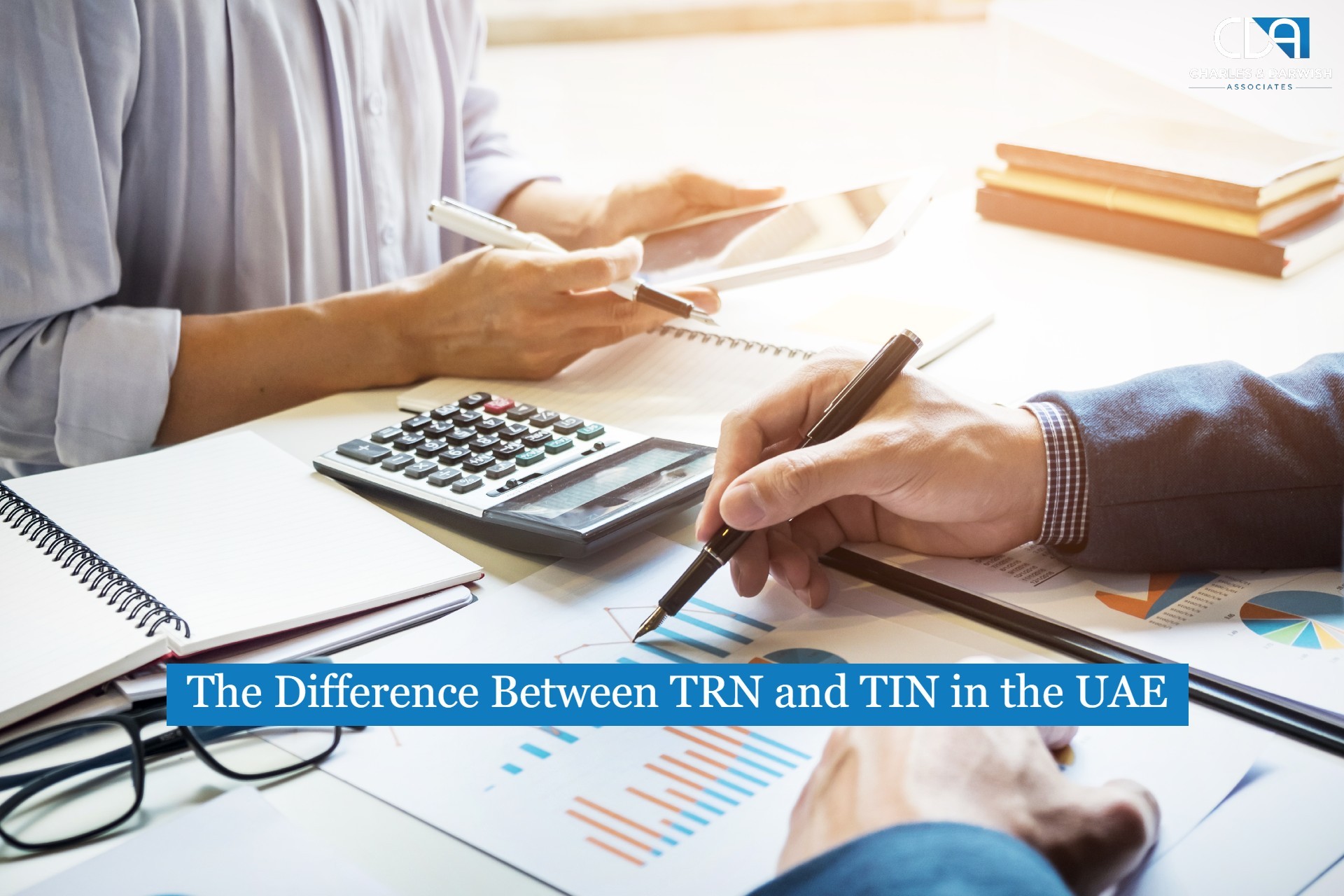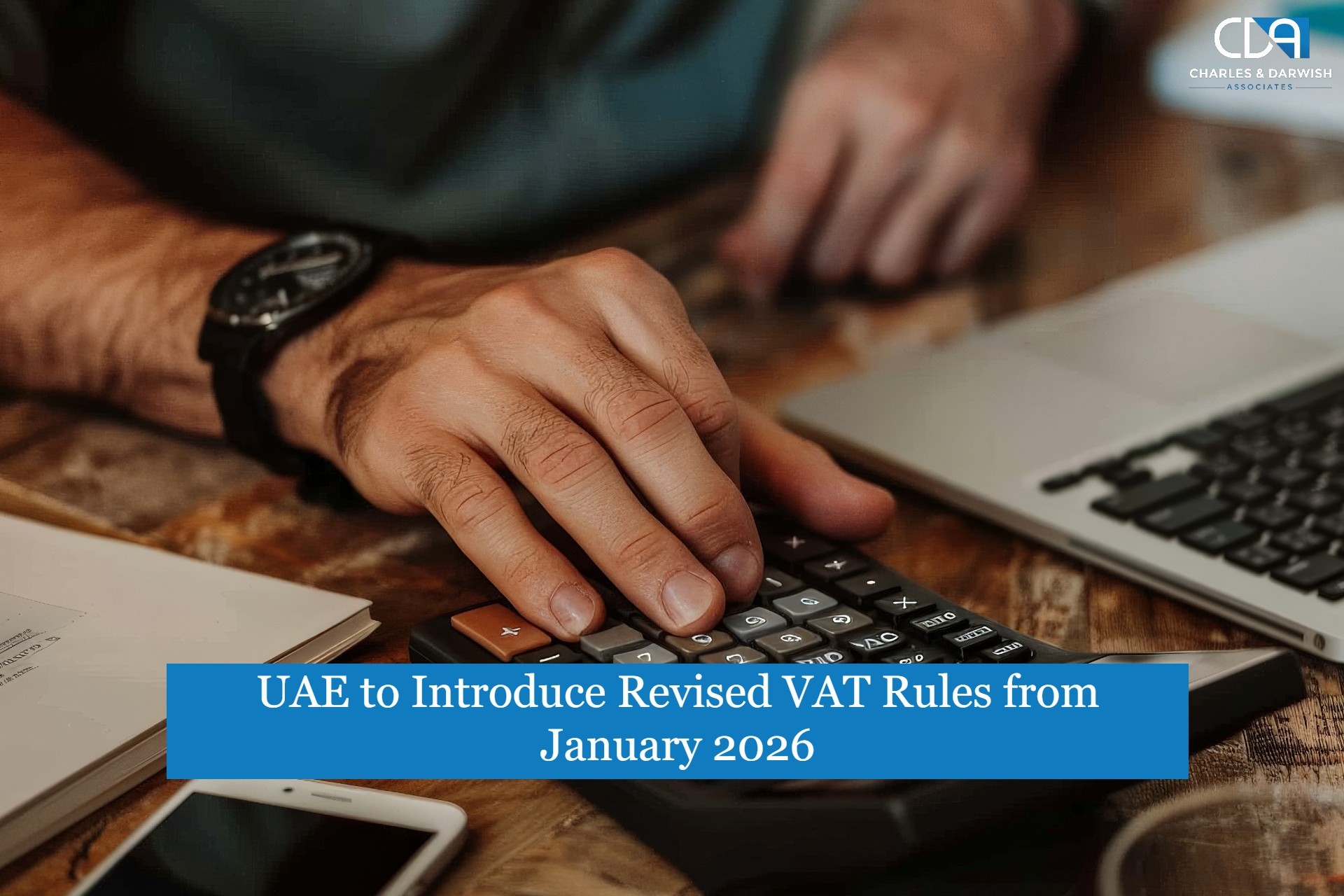The Difference Between TRN and TIN in the UAE
Most of the clients have been asking me regarding the procedures and the eligibility to get the TRN for their businesses in the UAE. Some of the entrepreneurs are still confused between TRN and TIN regarding the differences and still do not know if they are eligible to get the TRN. In order to avoid any penalties, it is paramount to get the TRN if the businesses are registered under the VAT.
The UAE has been taking all the required initiatives to make the land favourable as well as strict for the business owners, where compliance and growth go hand in hand. As a part of ensuring the compliance and to avail tax benefits, it is important to know more about the TRN and the procedures to acquire the same. As a tax consultant from one of the prosperous accounting and auditing firms in the UAE, I have shared some important insights regarding the requirements for getting the TRN and the eligibility criteria for getting the same.
Key Difference Between TIN and TRN
Clients and business owners usually use the terms "TRN" and "TIN" interchangeably, but they don’t mean the same thing. There is a slight difference, which must be kept in mind by the business owners while using the terms "TIN" and "TRN."
-
Tax Registration Number (TRN)
The TRN is the most commonly used and definitive tax identifier in the UAE.
Specific Use: The TRN is specific to the Value Added Tax regime. It is the unique number that is assigned to any entity or individual who has successfully registered for VAT by the Federal Tax Authority.
Required Format: It is easily identifiable as a unique 15-digit numeric number (e.g., 100123456700003). This format must be universally applied to determine the identification number for all VAT purposes.
Usage: The TRN should be used narrowly, although required for compliance with VAT, on:
- Tax Invoices and Tax Credit Notes
- VAT returns submitted to the FTA
- Customs documentation for imports and exports
- Any contract or agreement between businesses where VAT is applicable
Application for Individuals: An individual will receive a TRN only if they are operating as a sole proprietor or freelancer, and any taxable supplies made by the individual exceed the minimum or voluntary VAT registration amounts (AED 375,000/AED 187,500).
You can also read: UAE Tax Registration Number (TRN) Guide
-
Tax Identification Number
The TIN (Tax Identification Number) is a broader, more generic term. Think of it as the umbrella term for any number used to identify a taxpayer.
Broad General Use: The TIN is generally used for tax reporting, banking, and regulation on a global level. This is applicable in meeting several international reporting situations like FATCA (Foreign Account Tax Compliance Act) and the CRS (Common Reporting Standards).
Format: There is not a globally standardized format, and in the UAE the TIN could represent different numbers depending upon the situation:
- For a business trading under VAT, their TRN may, for international use, serve as their TIN.
- As part of UAE corporate tax (CT), upon creation of the CT, a registered business will have a specific CT registration number, which will act as a TIN for the purpose of compliance with the CT.
Applicability to Individuals: This is the important distinction. An individual resident in the UAE who is not operating a taxable business could still be required to provide a TIN if international regulation applied in that instance. Such as:
If a resident of the UAE has a bank account outside the country, the foreign bank would require a UAE TIN for FATCA/CRS reporting. In this case, the individual may need to apply for a Tax Residency Certificate (TRC) through the FTA, which could grant him or her a tax identity that fulfils the TIN requirement, although he/she does not have a TRN resolved according to proper notice.
Who Must Get The TRN?
In general, all the entities registered under the VAT regime might get the TRN from the FTA. Specifically, the following entities must mandatorily get the TRN:
- Mandatorily registered entities: Any of the entities that have registered under the VAT as the turnover exceeds the threshold of AED 375,000 must get the TRN, as it must register itself under the VAT and would receive the number on registration.
- Voluntarily registered entities: Any of the entities who have voluntarily registered under the VAT as the turnover exceeds the threshold of AED 187,500 must opt for the registration and could receive the TRN.
- Freelancers and individual entities: For any of the freelancing and individual entities, if the revenue made by them exceeds the threshold stated under the law, then they must get registered and would get the TRN.
- Import/Export business: For the businesses conducting the import/export business, registering under the VAT is crucial, and hence they would obtain the TRN, which would result in smooth processing during customs procedures and transportation.
- Free-zone entities: If any free-zone entity takes up supplying any taxable goods or services under the VAT, then it must get registered under the VAT and must receive the TRN.
You can also read: How Can You Apply for the Tax Residency Certificate in UAE, Dubai?
What Is The Use of TRN?
Now the next major query from the clients is regarding the use of the TRN. Most of the clients and business owners approach me to understand the use of the TRN once it is received. It is very crucial to be aware of its usage, as if this is not highlighted in the specific documents or invoices, there are high possibilities of getting penalties and fines.
The major use would include:
- Tax invoices issued during supply of goods or services
- While filing tax returns and any FTA-related documents
- Documents related to customs
- Contracts or any purchase agreements where VAT is applicable.
- And any other documents or processes wherever required by the FTA.
Importance of the TIN for Businesses
Now, similar to the TRN, The Tax Identification Number is crucial for:
- Accurate VAT Returns: Enables firms to accurately and timely file VAT returns with the FTA.
- Legal Compliance: Serves as documentation for tax registration, assuring the business operates legally.
- Smooth Trade: Required for customs clearance when conducting import and export operations.
- Avoiding Penalties: Assists organizations in meeting the FTA's requirements to avoid significant penalties and legal ramifications.
- International Credibility: Provides credibility with international customers and suppliers because it reflects tax compliance and transparency in international dealings.
- Invoice and Auditing: Necessary for compliance with VAT invoicing requirements and for maintaining appropriate records as part of the tax regime.
How can CDA Assist in Getting the TRN?
I and my CDA team have been providing the tax consultancy services for more than a decade for the prospective clients in the UAE. Understanding the complexities along with the compliance requirements regarding the VAT regime is crucial in order to avoid any penalties or fines.
Whether you need to register for the specific TRN for your VAT compliance obligations or navigate the broader requirements of the TIN for international reporting and corporate tax, our professional tax team can assist. Businesses focused on getting ahead in the competition and surviving in the market can approach our professional tax team to get VAT registration done without any delays and to get guidance regarding the VAT TRN usage and VAT return filings and any other requirements related to your tax identity, the TIN.
To know more about the tax services, connect to our experts now.

Mitesh Maithia
Tax Manager
Mitesh is a Tax Professional with expertise in direct, indirect, and international taxation, including transfer pricing, since 2018. Passionate about making complex tax matters simple, he shares insights to help businesses stay compliant and forward-looking.













